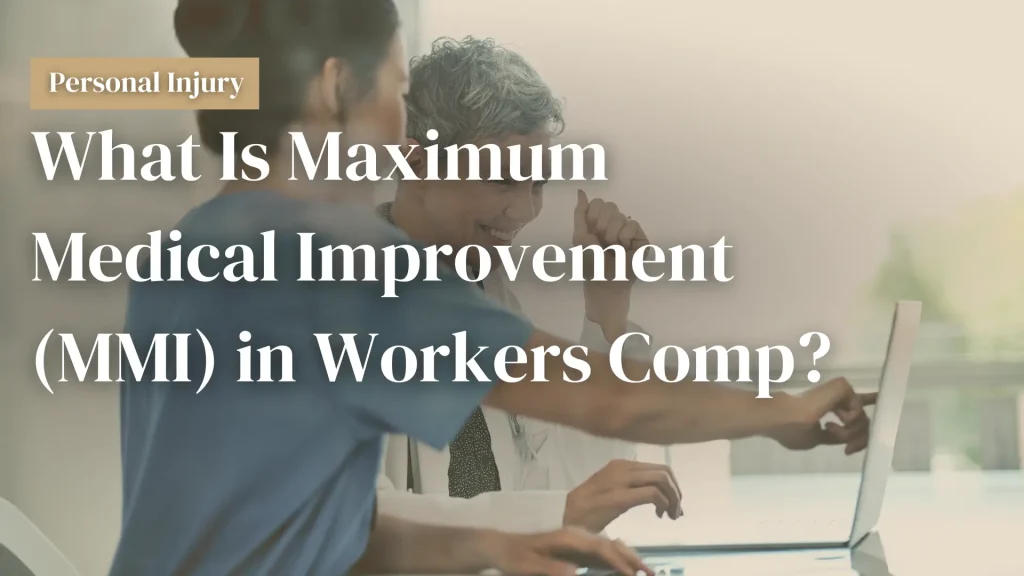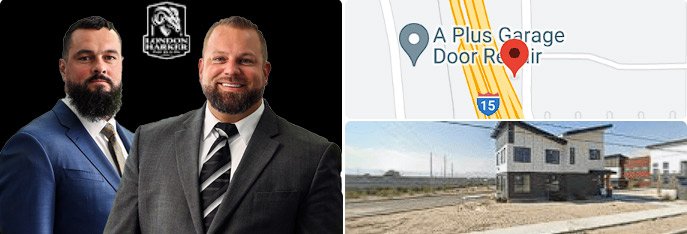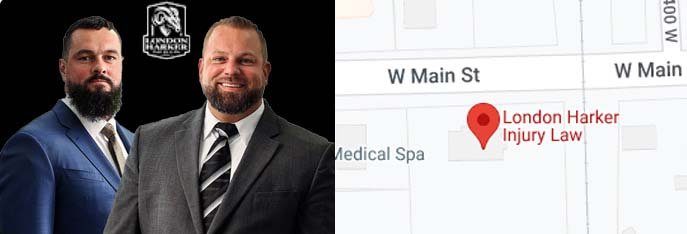Posted on Saturday, September 7th, 2024 at 9:00 am

When you suffer a work-related injury or illness, the workers’ compensation system is here to help cover your medical expenses and lost wages. However, there comes a point in your recovery where you reach what is known as maximum medical improvement (MMI).
Your condition is stable at this point, and further improvement is unlikely, even with additional treatment. Understanding what maximum medical improvement is and how it impacts your workers’ compensation claim is essential for your recovery’s legal and medical aspects.
What Does Maximum Medical Improvement Mean?
A workers’ compensation term indicates that an injured worker’s condition will likely not improve further. It means their medical condition is stable, but not necessarily that they fully recovered or are back to their pre-injury state. Instead, it means that their condition is as good as their treating physician believes it will get.
After reaching maximum medical improvement, your treating physician will consider any remaining symptoms or impairments permanent. They will then assess your condition to determine the extent of your permanent disability.
How Does My Maximum Medical Improvement Affect My Claim?
Reaching maximum medical improvement is a significant milestone in a workers’ compensation claim because it can directly impact the benefits you receive.
Once you reach it, your doctor will provide an impairment rating reflecting the severity of your permanent injuries. This rating is typically a percentage that attorneys will use to calculate your workers’ compensation permanent partial disability (PPD) benefits.
For example, if you injured your hand and your impairment rating is 20 percent, it means you have lost 20 percent of the use of your hand. According to Utah’s Workers’ Compensation Act, the total loss of a hand results in 168 weeks of compensation. Because you still have 80 percent use of your hand, you would multiply 168 by 0.2 (20 percent) to end up with 33.6 weeks of compensation for your partial disability.
Additionally, reaching maximum medical improvement can mark the shift from receiving temporary disability benefits to permanent disability benefits.
How Long Does It Take to Reach Maximum Medical Improvement?
The time it takes to reach maximum medical improvement varies widely depending on the nature and severity of your injury, the effectiveness of your treatment, and other factors specific to your case. Some workers may reach maximum medical improvement within a few months, while others may take years to reach that point.
Chronic conditions, severe injuries, or complications can extend your recovery period. Your treating physician will monitor your progress and determine when you are at maximum medical improvement based on your medical condition and response to treatment.
Who Determines When I Have Reached Maximum Medical Improvement?
Your treating physician is crucial in determining when you are at maximum medical improvement. They make this decision based on your medical records, the nature of your injury, your treatment progress, and other relevant factors.
Sometimes, your employer’s workers’ compensation insurance company may request an independent medical examination (IME) to get a second opinion on your condition and whether you are at maximum medical improvement. Generally, the insurance company wants you to reach it as quickly as possible and with as small an impairment rating as possible to protect their bottom line.
What Is an Independent Medical Examination?
An independent medical examination is an assessment conducted by a doctor not involved in your treatment. The stated purpose of these examinations is to provide an unbiased opinion on your medical condition, your ability to work, and whether you are at maximum medical improvement.
However, despite being called “independent” medical examinations, you should not view them as such. Instead, go into your examination thinking of it as a tool for the workers’ compensation insurance company to reduce your compensation because that’s what it is.
The results of an independent medical examination can significantly impact your workers’ compensation claim, particularly if there is a disagreement between your treating physician and the insurance company’s doctor regarding your maximum medical improvement status or impairment rating.
Before attending an independent medical examination, you should speak to your Utah workers’ compensation attorney. They will help prepare you for the examination and let you know what things you shouldn’t say to the doctor.
During the examination, the doctor will review your medical records, conduct a physical examination, and ask you questions about your injury, treatment, and current symptoms. After the examination, they will provide a report with their findings and opinions, informing decisions about your workers’ compensation benefits.
Can I Decline an Independent Medical Examination?
 In Utah, while you aren’t required to attend an independent medical examination requested by the insurance company, refusal could result in the suspension of your workers’ compensation benefits.
In Utah, while you aren’t required to attend an independent medical examination requested by the insurance company, refusal could result in the suspension of your workers’ compensation benefits.
When you decline an examination, the insurance company may take it to mean that your injuries are not as bad as you claim they are and will try to have the court suspend your benefits. You can fight back against this petition for suspension, but it may be more costly and time-consuming than undergoing the examination would have been.
If you feel the independent medical examination is unnecessary, such as if you already completed one recently, you can ask your attorney about petitioning the court to block it. However, in most cases, it may be best to go through with the examination and then seek a second opinion of your own.
Your attorney might be able to dismiss the results of the insurance company’s independent medical examination if they significantly differ from the findings of your treating physician and your examination.
Schedule a Consultation with a Utah Workers’ Compensation Attorney
Going through Utah’s workers’ compensation process can be challenging, especially when there are disputes over whether you reached maximum medical improvement and your impairment rating. Luckily, a knowledgeable attorney can assist you in protecting your legal right to workers’ compensation benefits.
Contact us at 77CARCRASH for a free consultation with one of the experienced attorneys of London Harker Injury Law. We have the legal knowledge and proven track record to answer your questions, explain your legal options, and work with you to help you receive the maximum benefits available.



